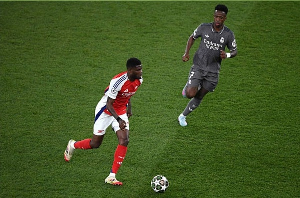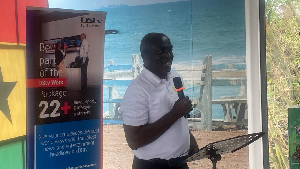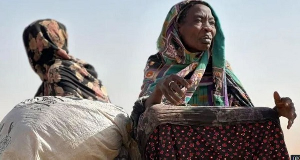The Ghana National Association of the Deaf (GNAD) has appealed to the government and other stakeholders to accept the sign language as a nationally recognized language.
According to the Association, the sign language is unique just as any other Ghanaian languages like Ga, Twi or Ewe, hence the need to accord it a lingual and facilitate its usage for easy communication among the deaf and their other counterparts.
A sign language interpreter at GNAD, George Pinto, said these in an interview in the Ghanaian Times in Accra last week.
He said per the 2010 Population and Housing Census, there were about 110,625 deaf people in the country but said: “I believe there are more than the stipulated figure the Ghana Statistical Service put out because we are not sure they had been to schools to count them and some people did not want to identify themselves as deaf persons”.
“Our investigations also revealed that some category of deaf persons were not classified under deaf people like we know they fall into the category. These people are people known as persons with acquired deafness or hard-of-hearing, meaning they became deaf as a result illness or accident. Such people can speak but they cannot hear,” he explained.
Mr Pinto further explained that sign language has its own syntax and grammatical structure and could be used for everything just as the Ghanaian local languages, adding that “we can use it for storytelling, jokes, singing and any other thing our local languages are used for”.
He said sign language was not universal and that hence the need for Ghana to have its own Ghanaian sign language, explaining that, sign languages were influenced by culture thereby making every country’s sign language unique.
He said the Association is also calling for the legal recognition of sign language so that it becomes mandatory for all Ghanaians to learn it and make it easy for deaf persons to access general information and services in the country.
According to the sign language interpreter, “because sign language is not legally recognised, when a deaf person gets a case in court and the services of a sign language interpreter is called for, it will be at the cost of the deaf person unlike other local language interpreters”.
“For example, in our courts, we have Ewe interpreter, Twi interpreter, and others like Ga the services of which is catered for by the courts. This is not the case for Ghanaian Sign Language”.
With regard to education, he mentioned that though deaf children must be taught in their first language in school, there is no legal binding rule for teachers to be fluent in the Ghanaian sign language before they are either posted or allowed to teach in schools for the Deaf.
“Because the Ghanaian Sign Language is not officially recognized as language, teachers in schools for the Deaf are not duty-bound to master the Ghanaian Sign language before they can teach special schools and heads and school management committees of schools for the Deaf cannot turn away such teachers”.
The same goes for health care where because Ghanaian Sign Language is not recognized, hospitals and health care services providers are not under any obligation to provide sign language interpreter to deaf clients or patients who visit the facilities.
Mr Pinto said when sign language is legally recognised it would be mandatory for sign language interpreters to at various service centres offering services to deaf persons cross the country.
Touching on the difference between signer and sign language interpreter, he said: “it is not everybody who knows sign language who can be a sign language interpreter, we have those who have learned the basic signs and can communicate with deaf people basically, but are not Ghanaian sign language interpreters”.
He mentioned that the Association has been advocating for access to Sign Language services for its members including facilitating access to quality information on education and health care thanks to the support from various donors.
Notable successes have been made as some institutions have been proactive by including sign language services. In accordance with the provisions on PWDs Act.
He mentioned the unprecedented step taken by Parliament of the Republic of Ghana, some hospitals and public universities and colleges as key examples.
“So many institutions providing critical services have the will but needs legal mandate. [They] could not and the absence of legal recognition of the Ghanaian SL has further complicated matters adding that services providers are not compelled to make their services accessible.”
While commanding BUSAC Fund and its implementing partners (DANIDA and USAID) for its financial support which enables the association to carry out advocacy for implementation of the PWDs Act and UNCRPD on Sign Language services, Mr. Pinto on behalf of the association called on the Bureau of Languages, Ghana Institute of Languages (GIL) Ministry of Education (MOE), key stakeholders in language acquisition to ensure that sign language was legally recognised in the country.
General News of Tuesday, 5 May 2020
Source: 3news.com













